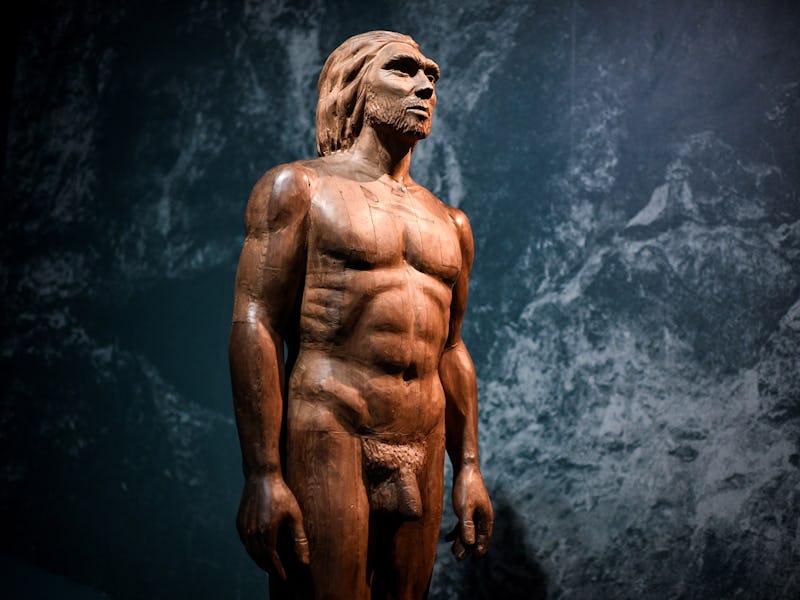Sex between ancient humans fundamentally altered perception
Modern-day humans may feel pain in a similar manner to a long-gone species.

Neanderthals live on in the genetic makeup of modern-day people because of ancient trysts with early Homo sapiens. Exactly how this genetic legacy influences health and behavior is still being teased out, but recent research suggests a Neanderthal gene variant does affect a common experience: pain.
Research published in July of this year found that some humans still carry the Neanderthal version of the gene SCN9A, which codes for the protein Nav1.7. This protein, a sodium channel, essentially acts as a pain volume knob, deciding how many painful signals are sent to the spinal cord and brain.
Inverse is counting down the 20 stories redefining 'human' from 2020. This is number 15. See the full list here.
The mutation was found in 0.4 percent of UK Biobank participants, a genome database made up of half a million British people. Those who had all three substitutions were about 7 percent more likely to report pain in their lifetime than those without it.
The individuals who carry this variation seemed to have ended up with the short end of the stick — they tend to experience more pain when compared with those without it.
While the experience of pain is never pleasant, it ultimately evolved as a survival tool. "Pain is not necessarily a bad thing," reminded Hugo Zeberg, the study's first author and researcher at the Max Planck Institute for Evolutionary Anthropology and The Karolinska Institutet. Pain alerts us to danger or illness, keeping us safe.
A version of the gene found in Neanderthal genomes had three genetic mutations in the SCN9A gene that resulted in an altered shape for the Nav1.7 protein. The team of evolutionary geneticists expressed this mutation in frogs to learn how this alteration might have affected the nerves of Neanderthals.
What remains to be seen is if this heightened sensitivity in Neanderthals was a result of natural selection — whether these mutations evolved because they were beneficial to our hunter-gatherer ancestors, or for another reason. Regardless, the study marks a step toward a better understanding of our Neanderthal inheritance, which may influence other experiences, like mood disorders and metabolism.
Inverse is counting down the 20 stories redefining 'human' from 2020. This is number 15. Read the original story here.